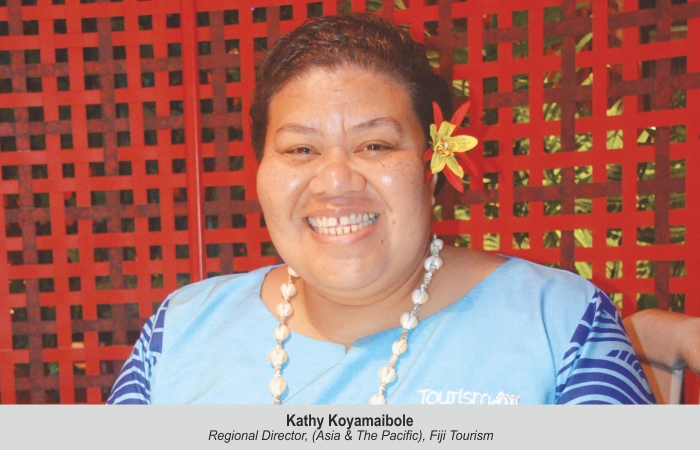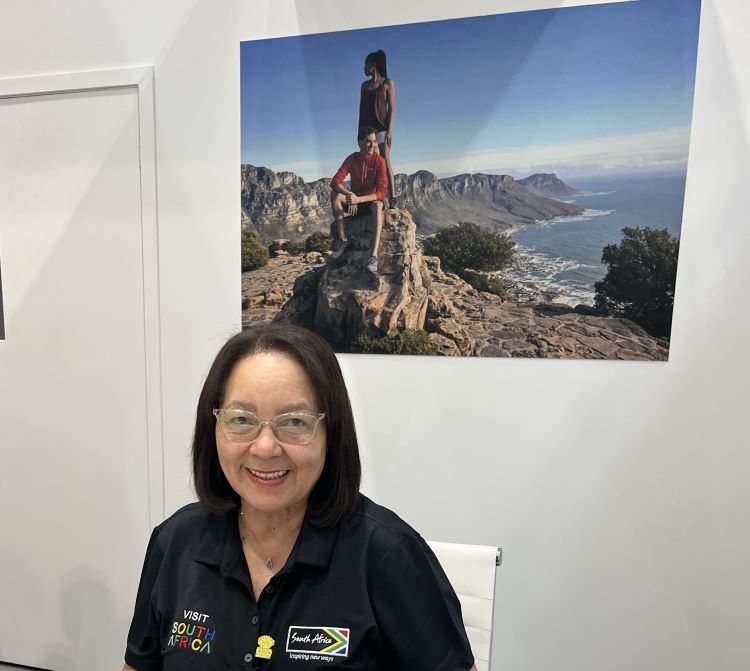With Fiji targeting to reach pre-pandemic tourist count of 7,000 by 2024, Fiji Tourism has taken several measures to attract tourists to the country. Kathy Koyamaibole, Regional Director (Asia & The Pacific), Fiji Tourism, discusses with TRAVTALK their revamped Fiji travel specialist programme and how agents can take its advantage.
Hazel Jain
Kathy Koyamaibole, Regional Director (Asia & The Pacific), Fiji Tourism, has been pushing for Fiji to become a standalone destination for travellers from India. She was in India recently to re-engage with their trade partners to reassure them that Fiji is still very invested in India and it continues to be their priority market. “Through our Care Fiji commitment, we have put in a lot of effort in our safety programme. So, we were able to open up to the world and reduce some of our restrictions over time for entering Fiji. We only have two requirements, one is to be fully vaccinated and the other is proof of booking within 72 hours of arriving in Fiji. No RT-PCR test required,” she reveals.
Movement from India to Fiji has started and Koyamaibole’s target is to reach 2019 numbers of the 7,000-mark gradually and sustainably by 2024.
“Fiji is perfect for honeymooners and couples, which has always been our primary segment. We also saw a lot of interest pre-COVID from families and MICE segments. These are our secondary target audience from India. We have connectivity via Singapore, Australia and New Zealand. The ideal stay in Fiji is six nights to get a full experience, as we have 333 islands and each one has a different charm,” she adds.
Matai specialist programme
Fiji Tourism has just launched its revamped Fiji travel specialist programme called Matai 2.0, and it is more in-depth and interactive with quizzes and more video content!
Koyamaibole says, “There is nothing like bringing the experience to life than a video. The revamped programme has three tiers – Gold, Silver and Bronze – with different incentives. The difference between this and the older version is that the last one was a lot more static with a refresher every year. The programme has sub-destinations and also niches. So, it has some really amazing content. There are exciting prizes for those who complete the Matai 2.0 programme before 31 July 2022. They then qualify for a famil to Fiji. We request agents to register for it and complete the course. We also have incentives for it and on fulfilment of the programme, agents can win a famil to Fiji. There are different incentives for different levels too.”
Fiji Tourism will also participate in all the main trade shows, as well as some workshops that it has planned for tier II and tier III cities in India, where it sees a lot of potential.
New products
Fiji also has a few new products for visitors. “A lot of our resorts were able to take advantage of the lockdown and refurbished themselves. Some of them have upgraded themselves, some have separate clubs now. A lot of newer facilities, for instance, the Sheraton has undertaken a $6 million refurbishment across all their properties on Denarau Island as has The Westin Denarau Island Fiji. Even Sofitel has a big clubhouse on the side with a separate check-in. In terms of new products, we have a new day cruise. It is a premium product and part of the South Sea Cruises. Guests get on to a luxury yacht for an entire day just cruising around the islands, stopping at sand pits and having a good time. The second one is called Seventh Heaven, another floating platform out in the middle of the ocean, with music and great vibes,” Koyamaibole explains.
Fiji, a country in the South Pacific, is an archipelago of more than 300 islands. It’s famed for rugged landscapes, palm-lined beaches and coral reefs with clear lagoons. Its major islands, Viti Levu and Vanua Levu, contain most of the population.
Indian passport holders do not need a visa to enter Fiji. On arrival, they get their passport stamped. “They don’t need to apply for anything – just you and your Indian passport,” says Koyamaibole. Fiji also has a huge Indian diaspora with its British history influence, so Indians will not have a problem with Indian or vegetarian food.
 TravTalk India Online Magazine
TravTalk India Online Magazine





